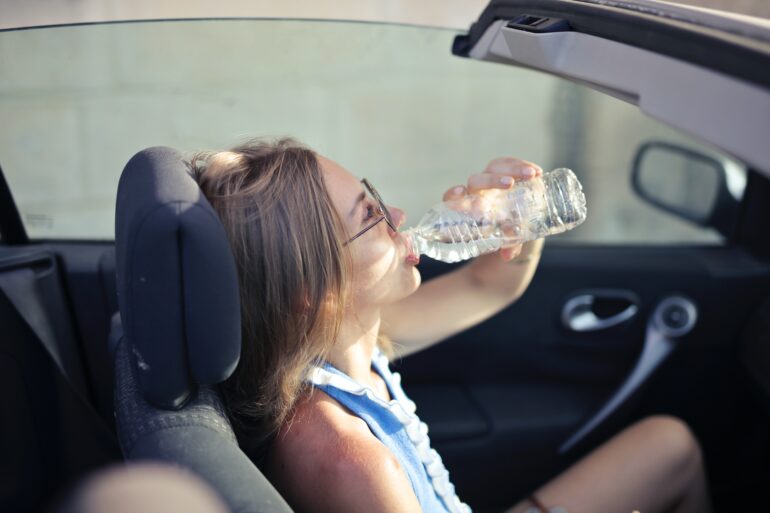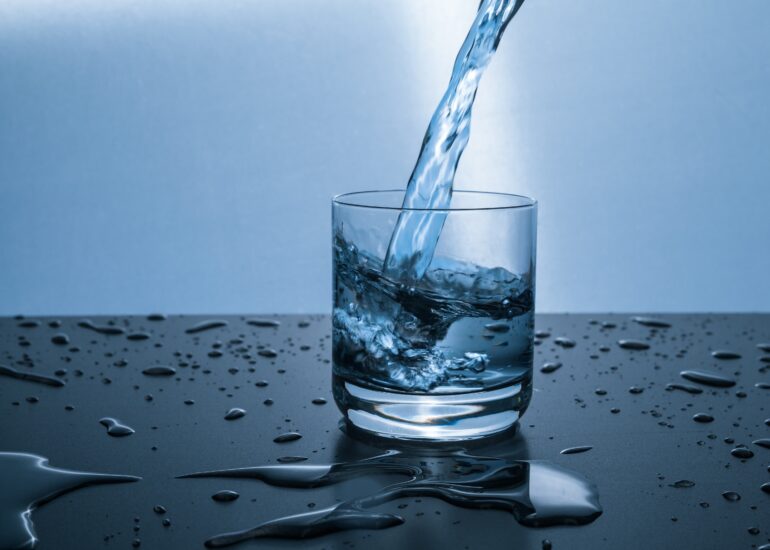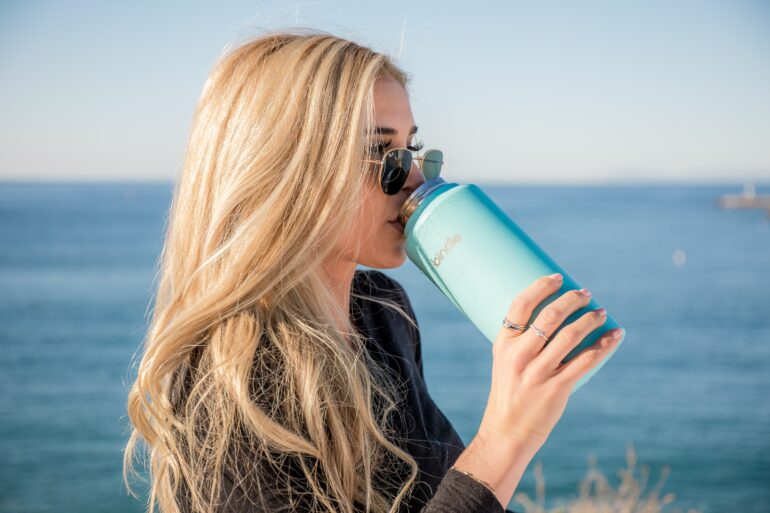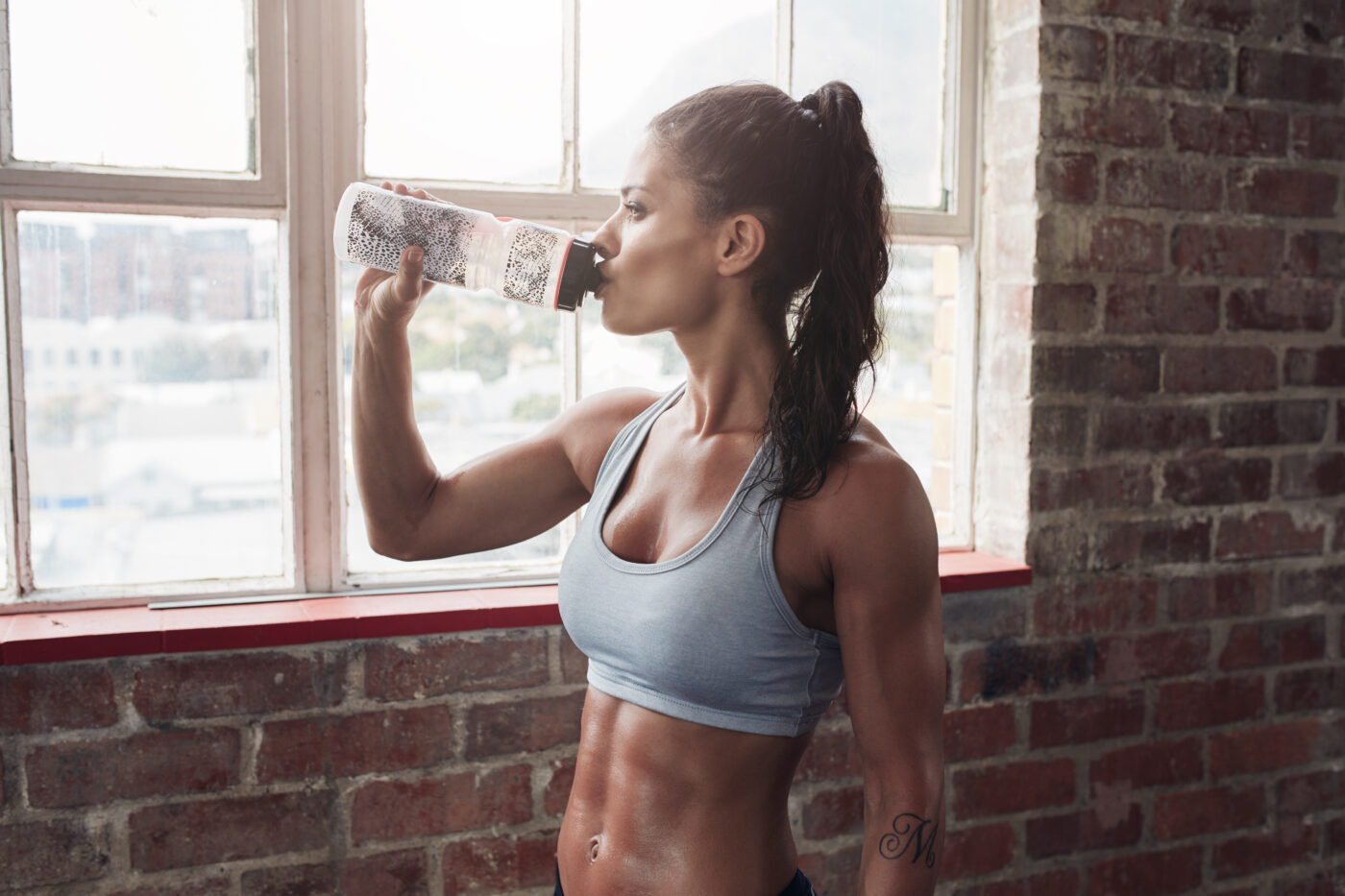Have you ever wondered if your body is getting enough water? How do you know when it's time to drink a glass of water? Do you simply ignore the feeling of thirst? Let's look at the signs when we are dehydrated.
In the modern, fast pace of life, when we are often busy and overwhelmed with various obligations, we often overlook something as basic and crucial for our health as proper hydration of the body. Does your body have enough water, when we are dehydrated?
Water it is a basic component of the body, as it participates in almost every physiological function - from regulating body temperature to supporting the digestive system. So how do you know when your body needs more water?

When are we dehydrated?
1. Feeling tired or exhausted
If you feel constantly tired despite getting enough sleep, this may be a sign of dehydration. A lack of water can cause a drop in energy because your cells aren't getting enough oxygen.
2. Vertigo and dizziness
Dehydration lowers blood volume and blood pressure, which can cause dizziness and lightheadedness. If you feel unsteady or dizzy, this is an important sign that should not be ignored.
3. Frequent headaches
Dehydration can cause the blood vessels in the brain to narrow, which can lead to headaches. If you are facing frequent headaches, you should check if you are drinking enough water.

4. Color and odor of urine
Monitoring the color and smell of your urine is one of the easiest ways to determine your hydration level. Light and clear urine indicates good hydration, while darker urine signals a lack of water.
5. Problems with memory and concentration
The brain is sensitive to a lack of water. Dehydration can affect your cognitive functions, including your memory, concentration and ability to think.
6. Feeling of constant thirst
If you feel constantly thirsty, even after drinking water, your body is signaling chronic dehydration. You should not ignore this signal, as it can affect your health in the long run.
How to stay hydrated?
1. Drinking small sips regularly
Waiting until you feel thirsty is not enough. Make it a habit to drink small sips of water regularly throughout the day, whether you feel thirsty or not.
2. Adjustment according to physical activity
If you play sports or exercise, you need to compensate for fluid loss by drinking extra water during exercise.
3. Tracking the color of urine
Urine should be light yellow. If it is darker, increase the water intake.
4. Drinking water from food
Fruits and vegetables such as watermelons, cucumbers, oranges and strawberries contain a lot of water. Include them in your diet for extra hydration.

5. Monitoring of special circumstances
Pregnant women, nursing mothers, children and the elderly have a greater need for water. Consider your specific needs and adjust your water intake according to your circumstances.
6. Awareness of your body
Pay attention to the signs of dehydration, not only for yourself, but also for those close to you. Encourage healthy water drinking habits in your home and among your friends.
Being aware of your hydration is key to your overall health and well-being. Monitoring your body, taking care of your diet and drinking water regularly are key strategies for maintaining optimal hydration.
Don't underestimate the power of water – it's your fuel for a healthy and energetic lifestyle.
How much water should we drink?
The amount of water you should drink each day depends on a variety of factors, including your age, weight, level of physical activity, environmental conditions, and general health. Nevertheless, there are general recommendations that can be followed.

According to data from the Mayo Clinic, it should men drank an average of about 15.5 glasses (about 3.7 liters) of fluids per day, while women should drink approx 11.5 glasses (about 2.7 liters) fluids per day. This amount includes water from all the drinks and food you eat during the day.
It is also important to consider your specific needs. If you are more physically active, you will need more water to replace losses during exercise. Also, pregnant women, nursing mothers and elderly individuals tend to have higher water needs.
The surest way to check if you're drinking enough water is urine color tracking. Light and clear urine usually indicates good hydration, while darker urine signals a lack of water. So pay attention to your urine and drink more fluids if you notice signs of dehydration.






